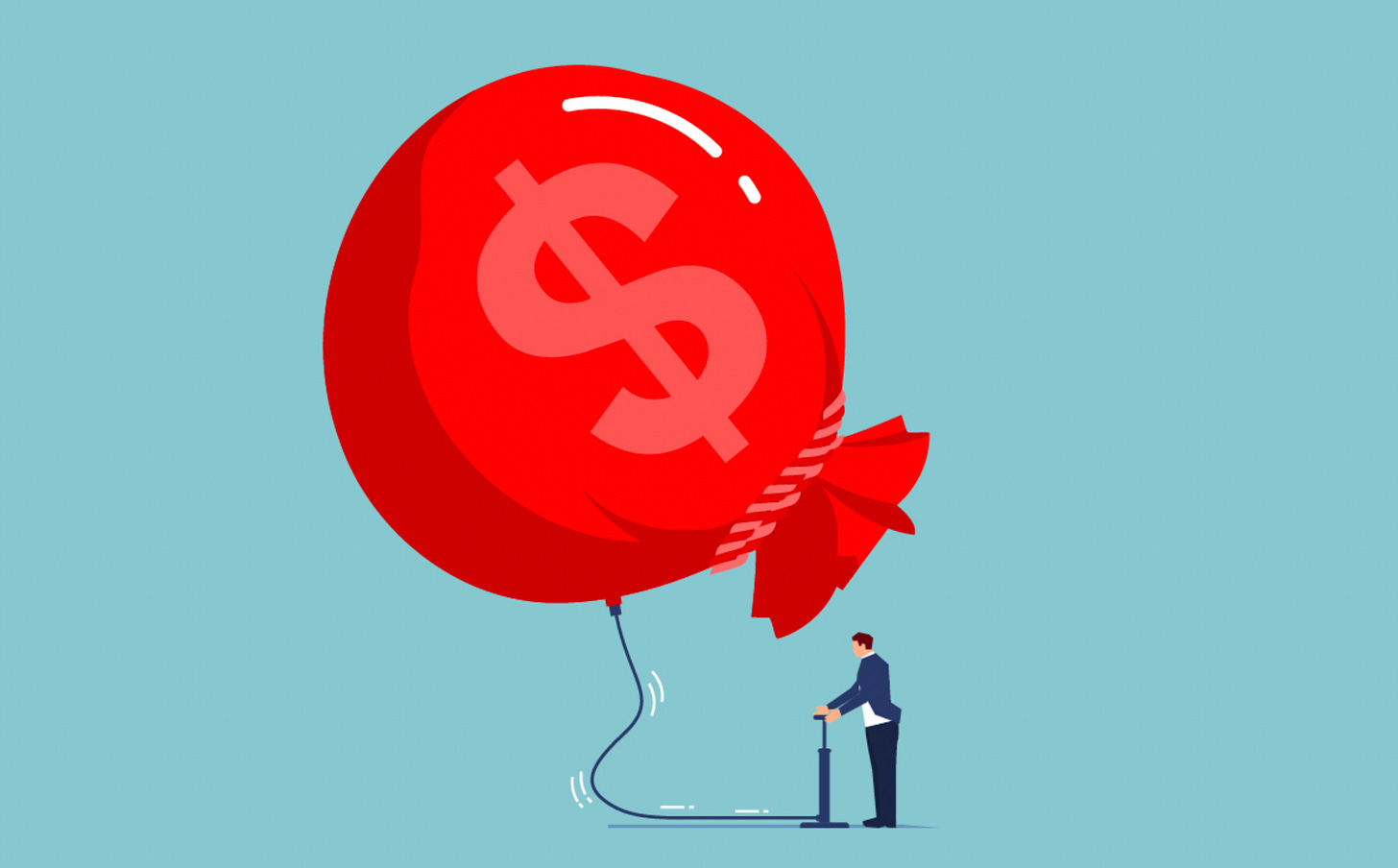I’m part of a group that hasn't experienced a sustained economic downturn as an adult. We’ve only known a trajectory that was up and to the right over the past decade. That was until we were faced with soaring inflation and interest rate rises. Everything we’ve known to be economically true has changed quickly.
In hindsight it’s obvious, but at the time it didn’t feel that way and I’ve learned a lot.
We always forget that markets are cyclical
Boom, bust, repeat. There were points in 2020 and 2021 when it felt like the party would never stop. Without any skill, diligence, or regard for risk, you were making money investing in just about anything.
This signals the top of a market is near.
There’s a long history of markets doing this. In order to find the absolute peak or trough, they have to be pushed to the extreme.
This behavior repeats consistently and you need to be prepared.
There’s a great quote from Economist John Maynard Keynes, "Markets can stay irrational longer than you can stay solvent”. Meaning markets are impossible to predict. When they seem unsustainable you know it cannot continue forever, but it doesn’t mean that it has to end tomorrow. Often the best returns come in the closing stages of a cycle and you can miss these by trying to time the market.
Rather than trying to avoid every up and down, you can position yourself to remain invested and ride things out. My strategy revolves around defining my own version of enough and being content with achieving that. For example, I’d be happy compounding at 15% per annum forever. I don’t need to expose myself to unnecessary risk or feel unsatisfied when there are opportunities to make more than that.
Have room for error especially when times are good
No spreadsheet, anywhere, predicted the last five years. History is way more interesting than any excel model and we’re always closer to the next unprecedented event than you think.
We’re incredibly good at forgetting about this!
To endure, you have to build room for error in your finances and plan for unforeseen risks. This is important because the biggest returns happen infrequently and the person who is around long enough to take advantage of them is always better off.
We’re now in a time when having room for error is incredibly valuable. We’re burning through savings at a phenomenal rate as inflation drives up the cost of living and debt becomes more expensive. The US Federal Reserve just released its quarterly report on US household debt which now stands at $16.9 trillion, that’s $2.75 trillion higher than before the pandemic. This is pretty scary when you consider interest rates are likely to rise further.

You should aim to have a level of savings and conservatism that doesn’t make sense in a model, especially when times are good. Once per decade, this room for error will come in handy if you lose your job, your mortgage payments end up higher than you expect or you experience other unforeseen events. Yes, you might lose a little to inflation but nothing replaces the security of knowing you have built the financial ability to overcome anything.
Never FOMO into financial decisions
Training yourself to avoid the fear of missing out (FOMO) is probably the best thing you can do to guarantee good investment returns over the long term. It’s easy to watch people around you getting rich, or seeming to, and convince yourself you can do the same. FOMO drives short-termism and guarantees bad decision-making.
There will always be someone getting rich faster than you. There’s a US study showing increased bankruptcies among households living near someone who won the lottery. Economists theorised that people may have seen good fortune next door and felt pressure to accumulate more assets of their own, especially flashy purchases, that they simply could not afford.
Make sure you forget about other people and focus on yourself. Don’t get caught spending or investing to please others. Having your own goals and definition of enough simplifies this. Remembering that the hard parts are often hidden from view is a nice reminder when this gets difficult.
Get rich slow
Berkshire Hathaway just released their 2022 annual letter, and my biggest takeaway was Buffett’s commentary, “Our satisfactory results have been the product of about a dozen truly good decisions – that would be about one every five years”.
If you can stay disciplined and play the long game you will build wealth over time. When you try and accelerate this process you reduce the chance of that happening.
Take the S&P 500 benchmark as an example. If you look at returns for the past 50 years it’s been incredible - about 10% per annum over that period. However, what this assumes is that you don’t panic and sell during dips and unprecedented events. The S&P benchmark is not linear. There are at least 10 years with negative year-on-year returns across that 50-year time span. Many people will sell and stop investing during these times. I’ve seen it repeatedly in retail investor behavior. You invest more when markets boom and pull back when they bust. It’s actually tough to achieve these averages over time unless you can stay the course and don’t panic.
Where to from here?
I’ve come to learn that nothing is ever as good as it seems, nor as bad as it seems. There are plenty more unforeseen events to play out in this current downturn. The media will always overhype what is actually happening, so don’t get caught up in sensationalist headlines. If you can form your own definition of enough, build flexibility, and commit to making long-term decisions that support your own goals - then you are ahead of most people. Stick at it!





